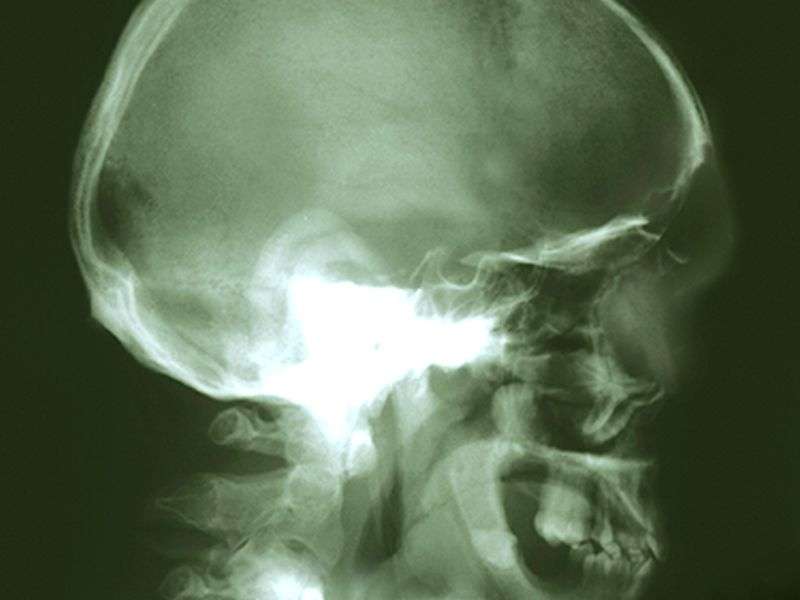(HealthDay)—The majority of patients undergoing skull base irradiation for cancer have no detectable cognitive impairment, but about one-third may have ambiguous results with a self-reporting tool, according to a study published online Aug. 1 in Head & Neck.
Chase C. Hansen, M.D., from the University of Texas MD Anderson Cancer Center in Houston, and colleagues quantified cognitive symptoms and objective cognitive dysfunction in 122 patients irradiated for skull base cancer. The researchers utilized the Telephone Interview for Cognitive Status (TICS) and the MD Anderson Symptom Inventory-Head and Neck module (MDASI-HN).
The researchers found that the majority (63 percent) had no frank detectable cognitive impairment by TICS. Frank impairment was seen in 6 percent of patients. The MDASImemory cut-off point of ≥5 was associated with detectable cognitive impairment by TICS, yet no MDASImemory threshold was associated with unambiguous absence of impairment by TICS.
"Approximately one-third of patients had ambiguous results by TICS assessment, for whom more rigorous testing may be warranted," the authors write. "Moderate-to-severe levels of patient-reported memory complaints on the MDASI-HN module may have utility as a screening tool for cognitive dysfunction in this population."
One author disclosed financial ties to General Electric Healthcare and Elekta AB.
More information:
Abstract
Full Text (subscription or payment may be required)
Copyright © 2017 HealthDay. All rights reserved.























